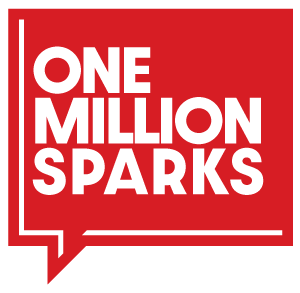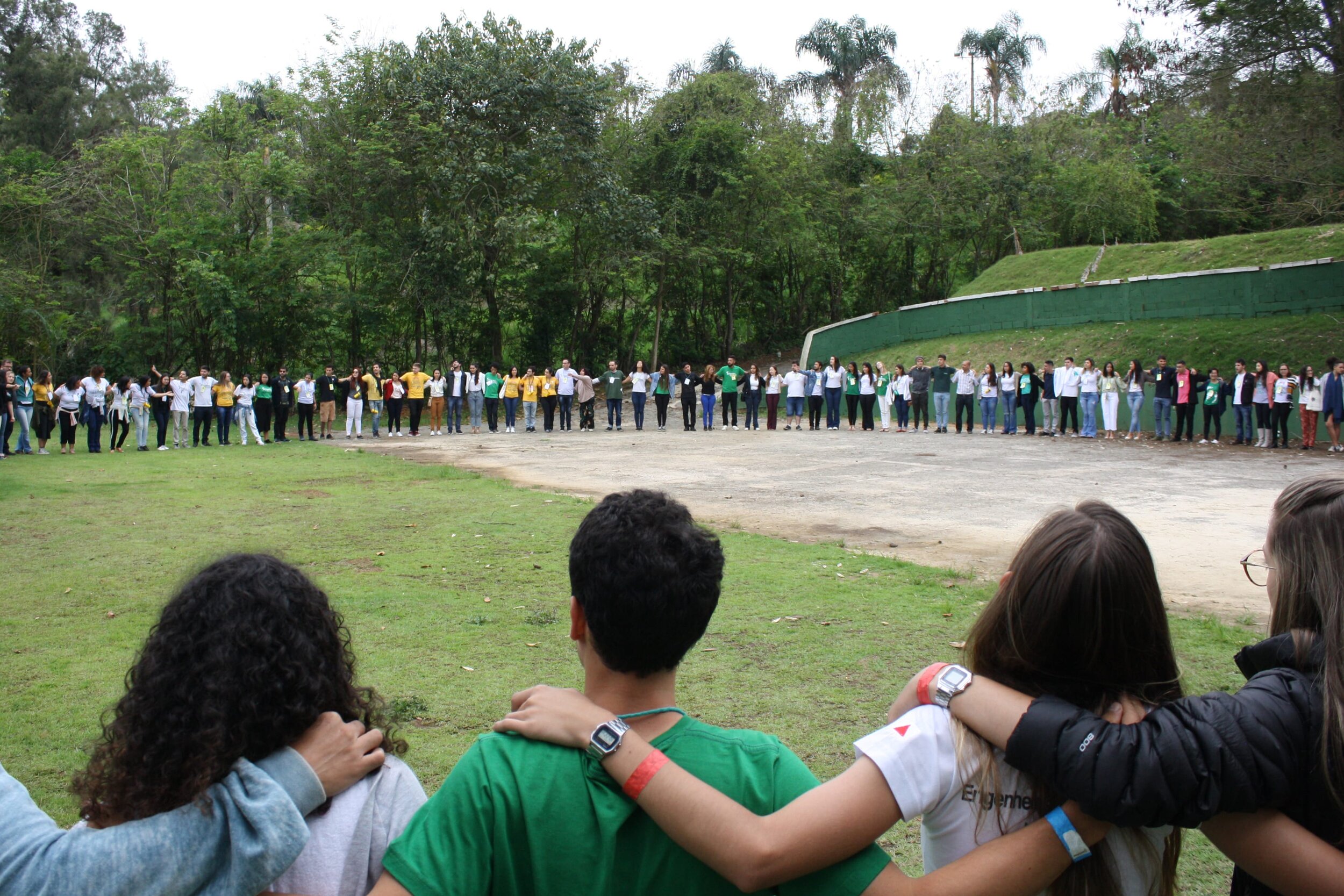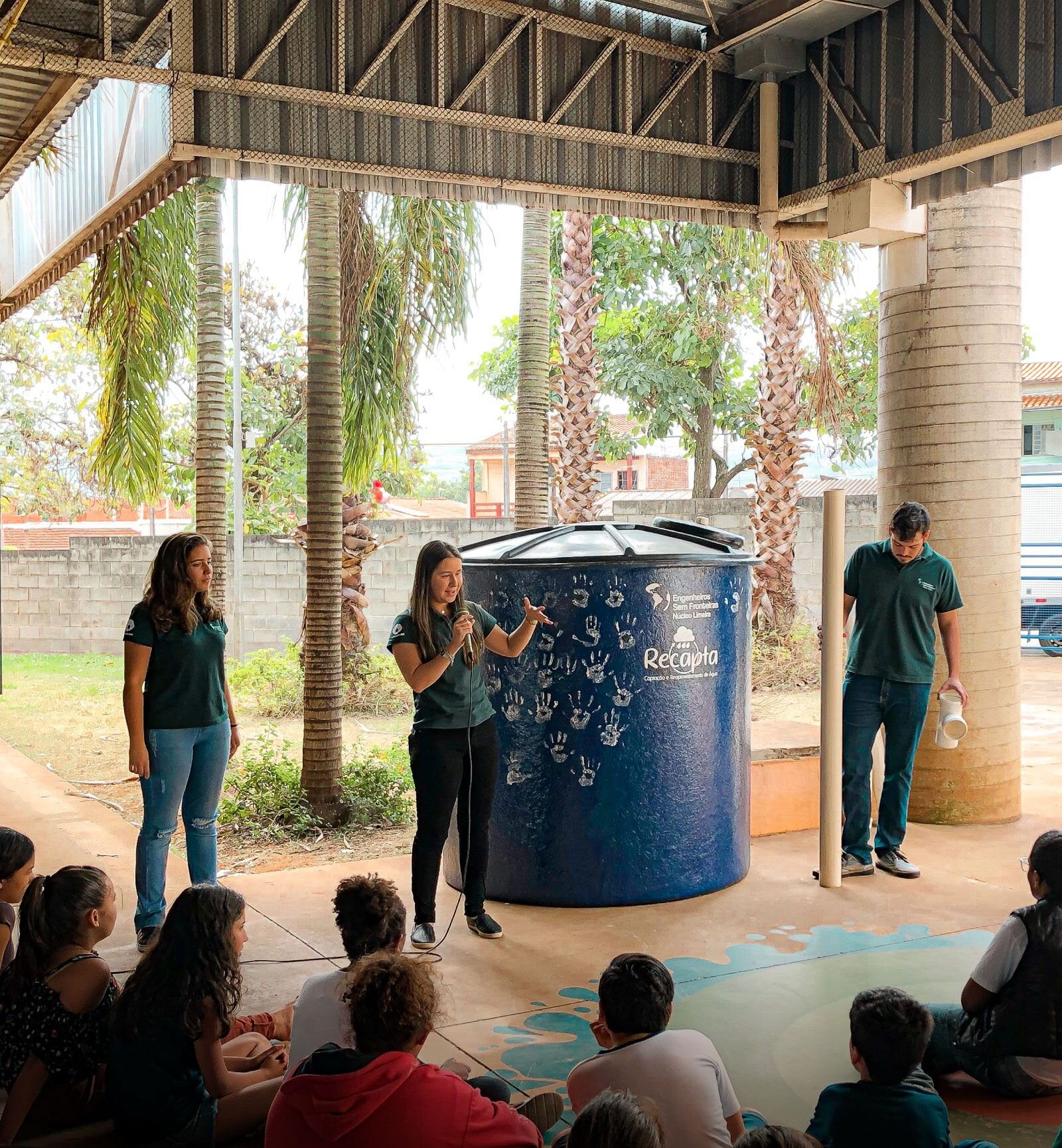The Science of humans. What happens when we use Engineering to improve people’s lives?
Editorial Note: How can we collectively improve our relationship with water sources? How can we build safer communities where safety is not easy to find? And how can we improve lives in a very difficult and changing world? One response comes from Brazil, where the organization Engineers Without Borders is successfully applying science and innovation to overcome issues such as lack of access to clean water and to sanitary products in more and more communities around the country and abroad. In today’s interview, Fernanda Deister Moreira, Fundraising Coordinator and Member of the Board, shares her journey through Engineering and later on Social Development, turning her scientific knowledge and background into a tool for positive change.
Source: Engineers Without Borders Brazil
Fernanda Deister Moreira, Fundraising Coordinator at Engineers Without Borders Brazil and Member of the Board of Directors - Engineers Without Borders-International
Q: Tell us about yourself.
A: I have a Bachelor in Environmental and Sanitary Engineering and I am pursuing an MSc in Sanitation, Environment, and Water Resources. I have been developing research from human rights to water and sanitation. The same reasons that make me believe I should make social research on engineering, are the ones which make me part of a social organization - the Engineers Without Borders Brazil - in which I have been volunteering since 2016.
Q: What is your vision for a more sustainable world?
A: A sustainable world is a place where people and the environment coexist in harmony without harming future generations. I believe we should keep in mind the importance to take action and take the responsibility to transform the world in a place with no discrimination, racism, prejudice, violence, and hunger. We need to take action now to transform the world into a liveable place for our children.
Q: What was your first step towards building a better world?
Source: Engineers Without Borders Brazil
A: As a student, I felt like I needed to do more than simply going to classes in order to become a technical professional. I felt the need to use my knowledge to improve people's lives and transform the world. So I joined Engineers Without Borders as a volunteer, an organization I am so proud to be a part of. We believe that engineering is a tool for social development, and that is why we use our knowledge and our desire for change to positively impact vulnerable communities throughout Brazil.
Q: What challenges did you face?
A: As an organization, the biggest challenge is to get donors and investors who believe in your work.
Q: How did you overcome your biggest challenge(s)?
A: To overcome the fundraising challenge, we have decided to expand our team and invest money and time on getting knowledge through courses, workshops, and events. We have learned from other organization's experiences and we have improved our process focusing on our own causes and goals.
Q: What is your biggest achievement so far?
A: Last year we were recognized as the Best Local Development NGO in Brazil and one of the Best 100 NGOs to donate in the country. Such recognitions give us credibility and more opportunity to improve fundraising. We have been granted funds for some of our projects and we have raised successful fundraising campaigns. Of course, we know we still have a lot to improve but this recognition is a motivation to keep going.
Source: Engineers Without Borders Brazil
Q: What keeps you moving forward?
A: The inspiration comes from the motivation of our 2000 volunteers who are spread throughout Brazil believing in humanitarian and popular engineering which transforms lives.
Q: What are the biggest lessons you have learnt?
A: The biggest lesson I have learned in all these years within the organization is to never give up on your dreams. If you believe your project is an opportunity to develop and improve the world we live in, you should never let someone let you think the opposite. Sometimes we feel tired or demotivated by any motive. But if you are passionate about your project you should never let anyone say it is not worth it.
Q: What’s next?
A: Our next step is to replicate a project we call Sustainable Schools throughout Brazil. We believe this project is a key to raising awareness on the SDGs in practical situations that even kids are able to replicate. Furthermore, considering the pandemic we have been taking action on emergency situations building shared sinks in vulnerable communities, producing antiseptic alcohol and masks to distribute, and providing food for families in need.
#Switzerland4Good Showcase
Engineers Without Borders Brazil Website
Engineers Without Borders Brazil Facebook
Engineers Without Borders Brazil Instagram
Engineers Without Borders Brazil LinkedIn




